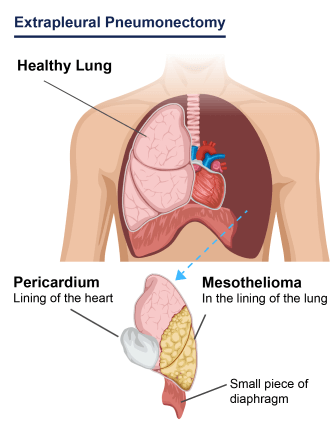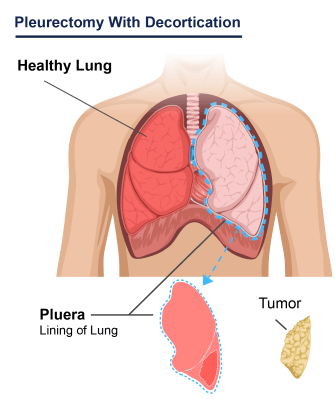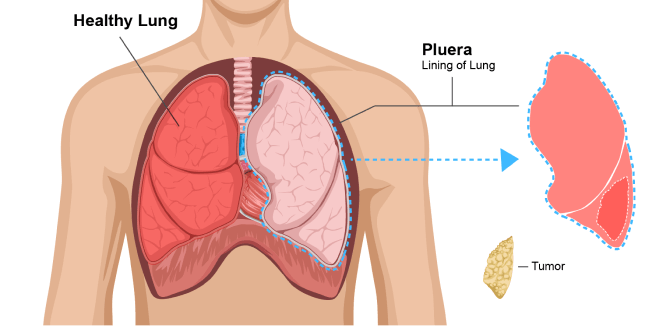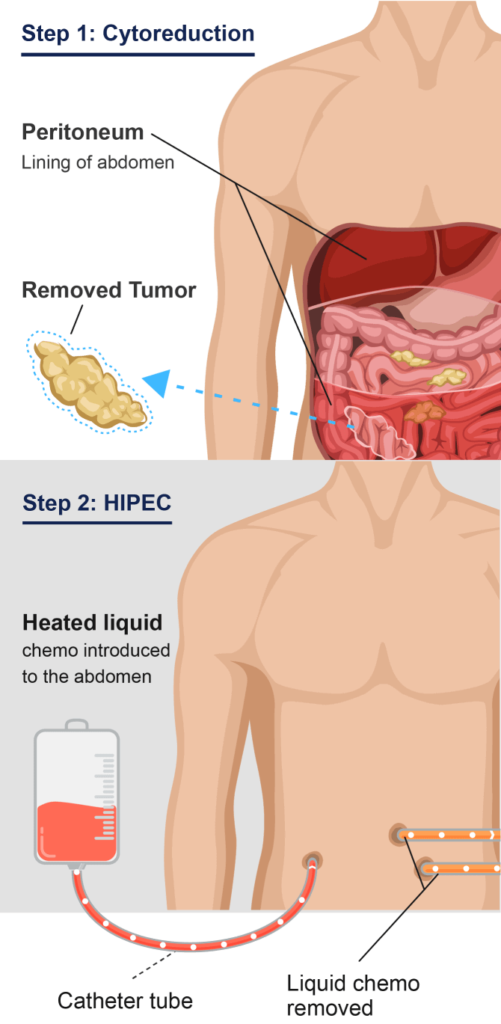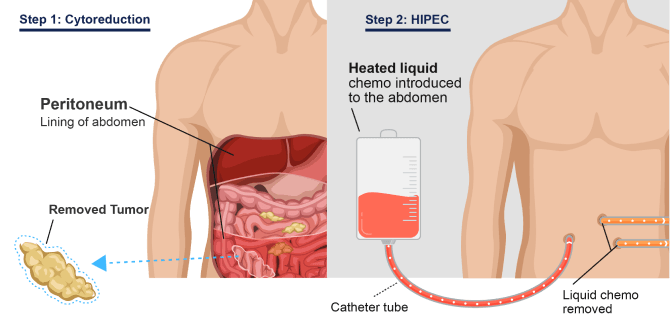Most mesothelioma patients have a median life expectancy of 15 months. However, patients may live longer by working with top mesothelioma doctors. Learn how to improve your mesothelioma life expectancy.
Get advice on treatment and improving life expectancy with a Free Veterans Packet.
What Is the Life Expectancy for Mesothelioma?
Mesothelioma life expectancy is the projected length of time a patient will survive following their cancer diagnosis. A patient’s life expectancy is part of their mesothelioma prognosis (health outlook).
- Pleural mesothelioma patients can live 12-21 months with treatment, depending on how far the cancer has spread by the time they’re diagnosed.
- Peritoneal mesothelioma patients who get treatment live for 53 months on average, according to the journal Annals of Translational Medicine.
Many patients with mesothelioma have outlived their life expectancies by months and years and have become long-term survivors.
Get a Free Veterans Packet to see how you can improve your mesothelioma life expectancy.
Life Expectancy by Type of Mesothelioma
There are several types of mesothelioma depending on where the tumors first form. Some types of mesothelioma are easier to treat than others, which can impact life expectancy.
Pleural Mesothelioma Life Expectancy

Pleural mesothelioma is the most common type of this cancer and forms in the lining of the lungs (pleura).
The average life expectancy for pleural mesothelioma patients is 18 months, as noted in a recent Frontiers in Oncology report.
Life expectancy after diagnosis varies by each patient. However, there are three main factors that affect the life expectancy of patients with malignant pleural mesothelioma:
- Diagnosis. Patients diagnosed early on have a better prognosis since the cancer hasn’t spread.
- Treatments. Aggressive cancer treatments can help patients live longer. However, they may be too dangerous for older or late-stage patients.
- Stage. Pleural mesothelioma has four stages. In the early stages, the cancer hasn’t spread far, so it’s easier to treat. Early-stage patients often have longer life expectancies as a result. Advanced-stage patients have lower life expectancies since the cancer has spread and treatments are limited.
Peritoneal Mesothelioma Life Expectancy
Peritoneal mesothelioma is the second most common type of this cancer and develops in the lining of the abdomen (peritoneum). It’s the easiest type of mesothelioma to treat, so these patients tend to have a higher life expectancy.
The median survival time for a peritoneal mesothelioma patient is 53 months (over 4 years) with treatment. Many peritoneal mesothelioma patients can live for 5 years or more if they’re diagnosed and treated before the cancer has spread far.
Our on-staff nurses can connect you with doctors who may be able to help you live longer with mesothelioma. Call (877) 450-8973 right now to get started.
Pericardial Mesothelioma Life Expectancy
Pericardial mesothelioma forms around the heart lining and tends to spread quickly. The average life expectancy for pericardial mesothelioma is 6 months after diagnosis since this cancer is very hard to treat. Many cases aren’t diagnosed until the patient has already died and an autopsy is performed.
Testicular Mesothelioma Life Expectancy
Testicular mesothelioma patients have fairly good life expectancies if they get treatment. Patients with testicular mesothelioma have a life expectancy of over 46 months, according to a 2019 Environmental Health report.
Factors Affecting Mesothelioma Life Expectancy
Life expectancy can vary based on when a patient was diagnosed, their overall health, and other important factors. See which factors impact mesothelioma life expectancy below.
Age
Older mesothelioma patients tend to have shorter life spans. Further, these patients may not qualify for aggressive treatment options like surgery that are key to improving life expectancy.
Gender
The American Cancer Society (ACS) found that men develop mesothelioma at a rate four times greater than women. However, women tend to have slightly better mesothelioma life expectancies.
Overall Health
Mesothelioma patients in good health tend to live longer than those who are not. Patients without other health problems are better candidates for life-extending treatments and can often recover faster from the side effects of such treatments.
Cancer Stage
Mesothelioma stages and life expectancy go hand in hand. Pleural mesothelioma patients diagnosed at stages 1 or 2 have the longest life expectancies as the cancer hasn’t spread far. As a result, they can undergo surgery and other types of mesothelioma treatment to remove tumors.
Once the cancer has reached stages 3 or 4, it has begun to spread to distant areas of the body. Late-stage patients have fewer treatment options available and don’t live as long.
Pleural Mesothelioma Life Expectancy by Stage
| Stage | Life Expectancy |
|---|---|
| Stage 1 | 21 months |
| Stage 2 | 19 months |
| Stage 3 | 16 months |
| Stage 4 | 12 months |
Source: Frontiers in Oncology, 2018
Pleural mesothelioma is the only type that can be formally broken up into stages. That said, doctors can see how far other mesothelioma types have spread and note if a patient can receive life-extending therapies or not.
Cell Type
There are three main mesothelioma cell types. Cell type affects mesothelioma life expectancy as some cells are easier to treat than others.
Epithelioid mesothelioma is the most common cell type. Epithelioid cells grow slowly and respond well to treatment. Epithelial mesothelioma patients can live for 18 months on average if they just undergo surgery and 23 months if surgery, chemotherapy, and radiation are used, according to the American Society of Clinical Oncology (ASCO).

Sarcomatoid mesothelioma is much more aggressive than epithelioid and has the lowest life expectancy of all cell types. The life expectancy for mesothelioma patients with sarcomatoid cells is 3.5-8 months, according to a recent report from Tumori Journal.

Biphasic mesothelioma occurs when a tumor has both epithelioid and sarcomatoid cancer cells. Patients with biphasic mesothelioma have a life expectancy of 10 months, as noted in a 2019 study from the National Mesothelioma Virtual Bank.

How Treatment Affects Mesothelioma Life Expectancy
Aggressive treatment is often the only way to improve mesothelioma life expectancy. Learn how mesothelioma treatments can help you live longer below.
Surgery
Surgeries are arguably the best treatments for improving mesothelioma life expectancy. Mesothelioma surgeries allow doctors to remove all visible cancer tumors.
Surgeries used to help patients live longer include:
Extrapleural pneumonectomy (EPP) removes all visible cancer tumors, the lung lining, and the lung closest to the cancer. According to the European Journal of Cardio-Thoracic Surgery, patients who receive an EPP and other treatments like radiation and chemotherapy have a median life expectancy of 35.6 months.
Pleurectomy with decortication (P/D) removes the lung lining and cancer tumors. Patients who undergo a P/D plus chemotherapy and/or radiation have a life expectancy ranging from 23.7-32 months, according to a 2017 cross-analysis of several studies.
Cytoreduction with HIPEC is a combination of surgery and chemotherapy used to treat peritoneal mesothelioma. The median life expectancy for patients who get this treatment is 53 months.
Other Treatments
Doctors can use other treatments besides surgery to improve mesothelioma life expectancy.
Other mesothelioma treatments include:
- Chemotherapy drugs are medications used to kill cancer cells. Pleural and peritoneal mesothelioma patients can live for 12 months when treated with chemotherapy. When chemotherapy is combined with surgery, patients can live even longer.
- Radiation therapy uses high-energy rays to shrink cancer tumors. Radiation is typically used alongside surgery. In a recent study, radiation helped late-stage pleural mesothelioma patients who had already undergone surgery live for 19 months longer on average.
- Immunotherapy is a treatment that allows the body to better detect and kill cancer. Immunotherapy can help pleural mesothelioma patients live for 18 months on average, according to the U.S. Food and Drug Administration (FDA).
- Tumor Treatment Fields (TTFs) use electrically charged pads to prevent cancer from spreading. Pleural mesothelioma patients who used TTFs alongside chemotherapy had an average survival time of 18.2 months.
- Clinical trials test new treatments that may help improve mesothelioma life expectancy. Both immunotherapy and TTFs were approved for wider use after clinical trials showed they could help patients live longer.
Use our Doctor Match to find a specialist to help improve your mesothelioma life expectancy with treatment.
Mesothelioma Life Expectancy Without Treatment
Mesothelioma patients may not qualify for treatment in some cases. These patients often have lower life expectancies.
- Mesothelioma patients live for an average of 4-12 months without treatment.
- Pleural mesothelioma patients typically live just 12 months if they receive palliative care. Palliative measures help reduce pain but do not improve mesothelioma life expectancy.
- Peritoneal mesothelioma patients who don’t get life-extending treatments live 6 months or less.
Remember: life expectancies are averages. How long you’ll live depends on many factors, and treatment is just one of these. However, it’s very important to consider life-extending treatments if you qualify for them. A doctor can help you make key decisions involving your health.
Doctors for Mesothelioma Treatments
Oncologists (cancer doctors) help patients live longer by recommending treatment plans.
These mesothelioma specialists have decades of experience in treating this cancer, so patients can rest easy knowing they’re in the best hands.
Specialists can be found at mesothelioma cancer centers across the nation.

Dr. Daniel Labow
Peritoneal mesothelioma specialist currently practicing at Praxair Cancer Center in Danbury, Connecticut

Dr. Taylor Ripley
Pleural mesothelioma specialist currently practicing at the Mesothelioma Treatment Center at Baylor Lung Institute in Houston

Dr. Robert Cameron
Pleural mesothelioma specialist currently practicing at the West Los Angeles VA Medical Center in Los Angeles
The Mesothelioma Veterans Center has no affiliation with and is not endorsed or sponsored by Dr. Robert B. Cameron. The contact information above is listed for informational purposes only. You have the right to contact Dr. Cameron directly.
Our team can connect you with top mesothelioma doctors right now.
- Alabama
- Alaska
- Arizona
- Arkansas
- California
- Colorado
- Connecticut
- Delaware
- Florida
- Georgia
- Hawaii
- Idaho
- Illinois
- Indiana
- Iowa
- Kansas
- Kentucky
- Louisiana
- Maine
- Maryland
- Massachusetts
- Michigan
- Minnesota
- Mississippi
- Missouri
- Montana
- Nebraska
- Nevada
- New Hampshire
- New Jersey
- New Mexico
- New York
- North Carolina
- North Dakota
- Ohio
- Oklahoma
- Oregon
- Pennsylvania
- Rhode Island
- South Carolina
- South Dakota
- Tennessee
- Texas
- Utah
- Vermont
- Virginia
- Washington
- Washington DC
- West Virginia
- Wisconsin
- Wyoming
Speak with our trusted advocates to learn more about mesothelioma specialists in your state.
Improving Mesothelioma Life Expectancy
Many factors affect the life expectancy of mesothelioma patients, some of which are out of their control. However, there are ways patients can improve their quality of life and their body’s ability to fight cancer.
Patients may increase their mesothelioma life expectancy by:
- Eating healthy foods
- Exercising regularly
- Getting treatment from a mesothelioma specialist
- Looking after their mental health
- Not smoking
Working with a mesothelioma doctor can also help patients live longer. Skilled cancer specialists can connect patients to the best mesothelioma treatment options available.

20+ years helping mesothelioma victims
“I just try to tell patients to stay in the here and now and go one day at a time. I don’t think any of us really know, except for the higher being — whatever that would be that you believe in — what each patient’s life expectancy is going to be."
Get a free veterans packet to learn about ways you or a loved one can improve your mesothelioma life expectancy.
Mesothelioma Life Expectancy: Common Questions
Is mesothelioma always fatal?
Mesothelioma often is considered a fatal disease with low rates of long-term survival. However, some patients have defied the odds and outlived their life expectancies.
For example, Richard, a U.S. Air Force veteran, developed mesothelioma and was given a week to live. Thankfully, Richard greatly outlived this grim life expectancy.
Is life expectancy the same thing as survival rate?
No. Both mesothelioma life expectancy and survival rate are part of a patient’s prognosis, but they are not the same thing.
Mesothelioma life expectancy is the expected survival time of a cancer patient. Survival rate is the percentage of patients still living after a certain amount of time.
Life expectancy is usually measured in months, while mesothelioma survival rates are given in percentages.
Which mesothelioma cell type has the best life expectancy?
Patients with epithelioid cells often have better life expectancies than patients with other cell types. Epithelial cells don’t spread as fast and are more easily treated, allowing many patients to live longer.
How can I live longer with mesothelioma?
Seeking medical treatments as soon as you receive a proper mesothelioma diagnosis is arguably one of the best ways to live longer. Treatments can help slow the spread of the cancer and may also improve your survival time.
Outside of getting treatment, maintaining a healthy diet and exercising may also play a role in helping you live longer with this cancer.
What are the end of life symptoms of mesothelioma?
In the last stages of mesothelioma, the cancer has spread from where it started and reached areas like the lymph nodes, the brain, or other major organs.
Patients with advanced mesothelioma often have short life expectancies, but treatments can help manage symptoms.
Other patients may even defy the odds and live much longer than expected if they can safely undergo aggressive treatments.

